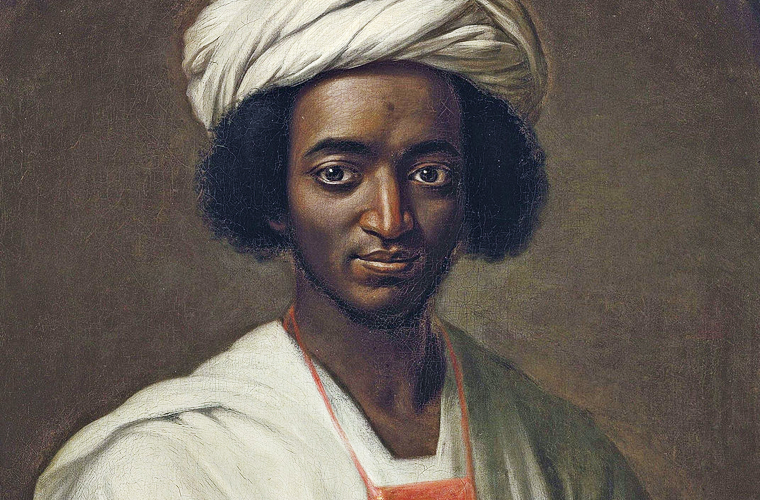Personal memories of slavery, “slave narratives,” became more common in North America in the nineteenth century, but they are much rarer in earlier periods. Perhaps the most revealing of those early narratives is the memoir of Ayuba Suleiman Diallo of Bondu, (in today’s Sénégal) and who was better known as Job Ben Solomon. An account of his remarkable life was first published in London in 1734.
A Muslim of high rank, Diallo was captured in 1730 on a trip to the Gambia and sold to Stephen Pike, captain of the Arabella. Diallo endured the Atlantic crossing aboard the Arabella and was one of 150 survivors who landed in Annapolis, Maryland, after a passage of nearly six months. In Annapolis, he was purchased by a Mr. Tolsey, who employed him as a slave in the tobacco fields in Kent Island, Maryland. Diallo escaped from the plantation and was captured and jailed.
While he was in jail, it was soon clear to those around him that Diallo was an educated and devout man who was a literate and strictly observant Muslim. With the help of attorney Thomas Bluett of Maryland and James Oglethorpe, the founder of the colony of Georgia and Director of the Royal African Company in London, Diallo was freed. But we now know that his supporters in the Royal African Company had an ulterior motive in mind. “The said Negroe understands and writes Arabic and may be of Service to the Company on giving him his Freedom and sending him to the Gambia,” a Company employee insisted.
The Company thus sent Diallo to England, where he was lionized in London society (he was even presented at Court) before he was finally allowed to return to Africa. Five years after his initial enslavement in the Gambia, he stepped ashore a free man. He was one of a very small handful of Africans who managed to return to their African homeland in the era of the Atlantic slave trade.

